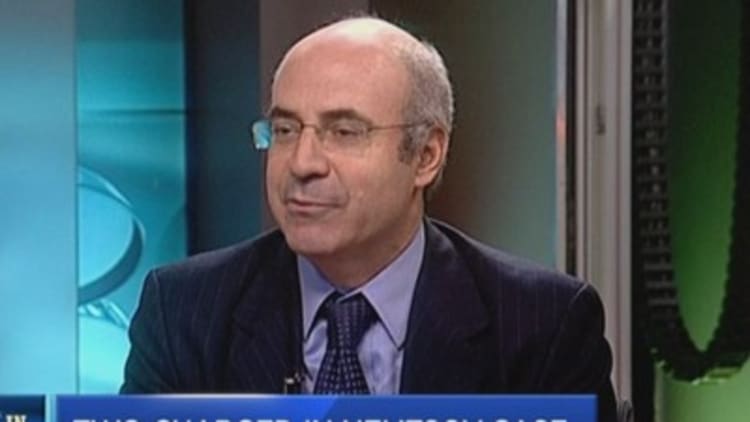
In spite of Russia's political isolation and the uproar over the death of Putin critic Boris Nemtsov, domestic support for Russian President Vladimir Putin remains strong. But one of the Kremlin's most vocal critics believes Putin's ultimate downfall could come at the hands of the unfolding economic crisis.
"I don't think the Nemtsov murder is going to touch the vast proportion of Russians but it's going to touch people like me profoundly and other people hoping for a liberal democracy," Kremlin critic Bill Browder told CNBC Monday.
"But what will, and what always does in these situations, is an economic crisis. Why was there an Arab Spring (in 2011) – it wasn't because of a wave of democracy, it was because food prices went up and prices of fuel went up for people (living) below the subsistence level and they couldn't stand it anymore."
"There's going to be some catalyst related to the economics that will end Putin's regime. He doesn't know and we don't know what that catalyst is going to be and when it's going to happen."
Browder, the chief executive and founder of Hermitage Capital Markets, has been a vocal critic of the Russian government and its leader Vladimir Putin for a number of years.
Browder was kicked out of Russia for accusing Russian tax officials of embezzlement, in 2007. Since then, he has repeatedly accused Russia of corruption and has been involved in a high-profile battle with the Russian state over the death of his lawyer Sergei Magnitsky, who was investigating fraud among Russian officials.
More than half of Russians would vote for President Vladimir Putin if a snap presidential election were held, a survey published last Thursday showed. Out of 1,600 adults polled by the independent Levada Center last month, 55 percent said they would cast their ballot in favor of Putin if a snap presidential election was called. The overall approval rating for Putin was 86 percent in February, however, just slightly lower than October's high of 88 percent.
Read MoreRenzi in 'pact withthe devil' as he visits Putin?
Now based in London, Browder told CNBC Europe's "Squawk Box" that Putin's recent approval ratings of 88 percent -- despite a year of economic deterioration caused by the falling oil price and western sanctions on Russia for its part in the Ukraine conflict – were unbelievable.
"The polls can't possibly be accurate," he said.
"I don't think he has an 88 percent approval rating but he does have a high approval rating because they've been creating this nationalist frenzy on television."
Russia is in economic trouble. The economy is expected to enter recession this year as sanctions and the low oil price, on which Russia depends as a major oil exporter, start to bite.
The weakened ruble has dramatically impacted the rate of inflation, which accelerated in February to hit 16.7 percent from a year earlier. As a result, Russians are expected to spend more than half their incomes on food this year, according to research published last week by Russian bank VTB Capital.
Read MoreOuch! Russians could spend 55% of income on food
Keen to be seen sharing the public's economic pain, it was announced on Friday that President Putin had cut his own salary, as well as that of Prime Minister Dmitry Medvedev and other high-ranking officials, by ten percent.
The salary cuts could be extended into 2016, Putin's press-secretary, Dmitry Peskov, told RIA-Novosti news agency. "This is a temporary ruling, caused by the current economic situation. If the conditions do not change significantly, this period will be extended. If there will be a change for the better then there will be no more reason for the extension," he said.
According to government documents released in 2014 cited by CNN, Putin's annual salary was nearly 3.7 million rubles last year -- worth about $61,000 today due to inflation.
- By CNBC's Holly Ellyatt, follow her on Twitter @HollyEllyatt. Follow us on Twitter: @CNBCWorld


